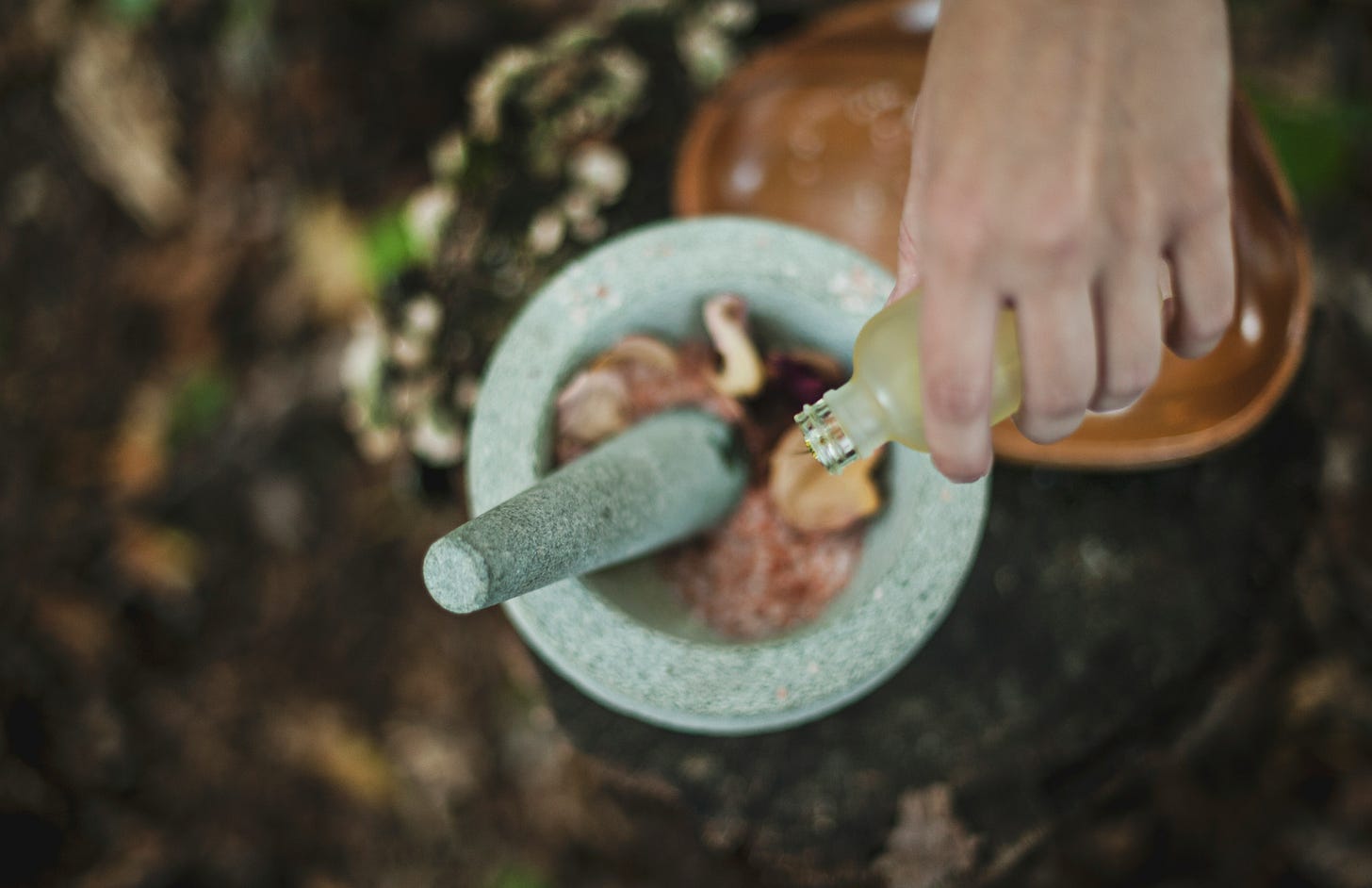Ramps grew thick in the woods by my parents’ house and after three years living in Colorado, where I had to order them by mail, I was excited to be able to forage them again.
A species of wild onion, ramps are a sign of spring in Appalachian Ohio, and a part of the culture. Before they were known as a cool ingredient for trendy chefs in cities, my young son cheered when we had them for breakfast, fried in the cast onion skillet with bacon fat. One of my favorite memories during one of the early times of the pandemic was a whole day spent in the deep woods, witnessing a wild turkey on her nest, and foraging for mushrooms and ramps.
In Colorado, I missed ramps so much I ordered them off the internet. I corresponded with the forager in Wisconsin. My family ate most of the ramps, but I planted a few bulbs in a container in our Denver backyard. I watered them faithfully, even though I doubted they would grow—doubted so much, I almost forgot they were there. Still the next spring, they sprouted. I ordered more. Then the heat wave and hail knocked the crop out.
But in Ohio, ramps grow. I picked them by the bagful in the woods, and I fried the first batch. They were OK. They were the right plant—I’m very careful and informed about that—but they didn’t taste like Appalachia, like home. They tasted like northern Ohio, which is where I live now but which is not home.
Sometimes the reason you’re struggling with a story is because you’re telling the wrong one.
I’d blend them into a pesto, I decided. I bought pine nuts and olive oil. I’m growing basil in my kitchen. I left the ramps in the fridge.
And I left them and I left them.

I had been struggling with my work-in-progress. I thought it was the stress of moving. I thought it was the dregs of Long COVID. In my worst moments, I thought maybe after my illness I wasn’t going to be able to write again, not like I used to, for hours and hours, excited about a story and lost in it, happily. This story just wasn’t coming, as much as I willed it to and as much as I tried to force it.
I tried new things. I invented a new system for myself of writing longhand in public places, which worked for awhile. My heart just wasn’t in this story, though. I was making myself and I actually hated it.
A smell was coming from the fridge, a smell of death. Pushed to the back in plastic bags, the foraged ramps had rotted. So much for my pesto. I threw them out. The next week, an Amish farmer had garlic scapes for sale at the farmers’ market.
I still had my pine nuts and olive oil and basil. I made garlic scape pesto, which was so delicious, I froze the leftovers after a week, afraid to miss any of it. Sometimes the recipe is not the recipe. Sometimes you have to start again.
In conversations with a friend, I realized I was forcing myself to make the protagonist of my story older than she should be, and I realized a small detail of the book was actually the book, the thing that made it different, the thing that made me excited to create. I remembered my first year of college, when my beloved faculty advisor and medieval lit professor told our class sometimes you get to the end of your paper and realize what your thesis actually is. Then you have to start again. That’s unbelievable, I thought. No way I’m doing that.
Believe it. I’m doing it. Sometimes your brain is just warming up.
Every book teaches you how to write it and every project is different, I’ve long known. But this is the first time I’ve written almost 200 pages only to discover my story wasn’t my story, and I had to start again. That’s different all right. Sometimes your ingredient rots but you find a new ingredient. Sometimes it’s not actually time, method, or craft. Sometimes the reason you’re struggling with a story is because you’re telling the wrong one.
Start again, with scapes this time.
A Spell
For the garlic scape pesto, I used a variation of this recipe, adding more pine nuts, olive oil, and cheese than it called for, because I am me. This pesto is great on chicken, gnocchi, or just on crackers, and you can absolutely freeze it.
News
DUST is now available for pre-orders, and there’s a 25% off sale at B&N until July 17 with the code PREORDER25. The indie bookstore Main Street Books Monroe is also offering the same discount on books with the same code.



